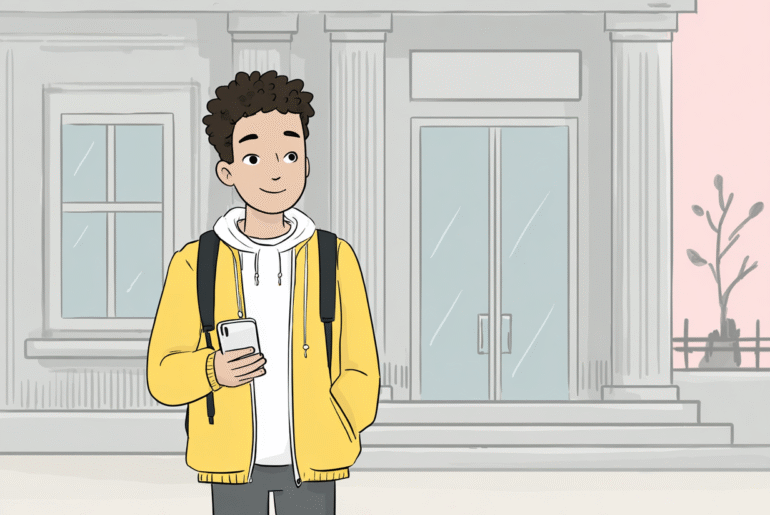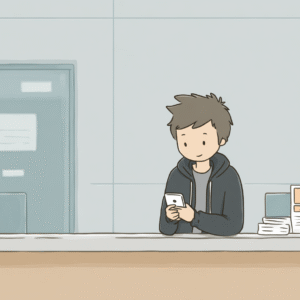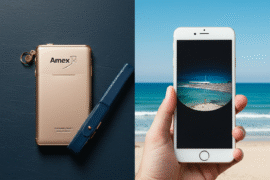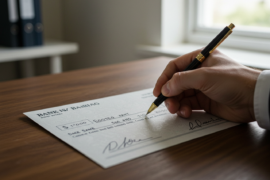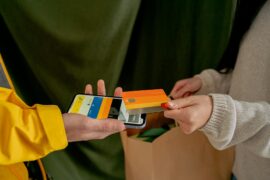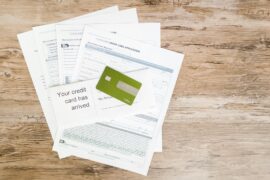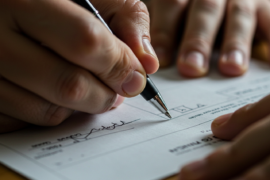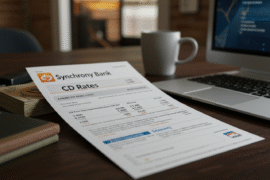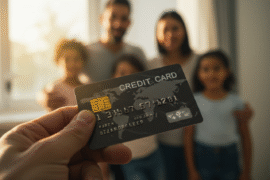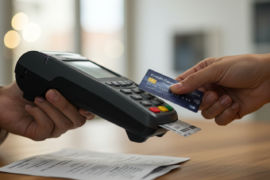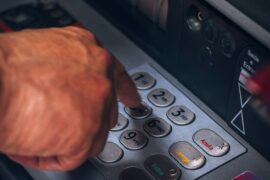This article may contain references to products or services from one or more of our advertisers or partners. We may receive compensation when you click on links to those products or services. Nonetheless, our opinions are our own.
The information presented in this article is accurate to the best of our knowledge at the time of publication. However, information is subject to change, and no guarantees are made about the continued accuracy or completeness of this content after its publication date.
- Introduction: Why This Even Matters
- What is a Bank Account?
- Top Reasons to Open a Bank Account When You’re Not Yet 18
- How to Open a Bank Account as a Teen
- Where to Look:
- Tips for Taking Care of Your First Bank Account
- Real-Life Example: Ava, Age 16
- Why Involving a Parent or Guardian Matters
- Final Thoughts
- Recommended Reads
Introduction: Why This Even Matters
As teens, most of us think banking is something we’ll worry about when we get older, maybe when we start college, get our first job, or move out. But here’s the truth: the sooner you learn how to manage money, the stronger your financial future becomes.
Opening a bank account before you turn 18 isn’t just about stashing cash somewhere safe. It’s a smart move that can teach you real-world money skills, help you build independence, and even get you ahead in investing, saving, and planning for college.
Let’s break down why this matters, what the benefits are, and how to actually do it, even if you’re still in middle or high school.
What is a Bank Account?
Before we dive into the why, let’s get clear on the what.
A bank account is a secure location to store your money, usually at a bank or a credit union. There are various types of accounts, but the two most used ones by teenagers are:
- Checking account – for day-to-day spending (debit card, ATM withdrawals, online shopping)
- Savings account – where you stash money and earn some interest later
When you get a bank account as a teenager, it’s typically with a parent or a guardian. What that means is that the both of you guys have access to the money, and they help keep a rein on how it’s spent.
Top Reasons to Open a Bank Account When You’re Not Yet 18
1. Learn How to Manage Money Early
Money isn’t something you blow, it’s something you must look after. Getting a bank account makes you the boss of your own money:
- Tracing what you spend
- Eyeing your balance
- Saving on a regular basis
- Avoiding overdrafts or late fines
These are skills you don’t learn in school but are absolutely essential to life after graduation.
2. Learn About Digital Banking
Cash is cool and all, but digital money is the way of the future.
All the major banks have mobile apps that enable you to:
- See your balance in real time
- Set savings goals
- Transfer money between accounts
- Get alerts when your balance is low
Having these apps as a teenager makes you feel more secure and less confused when you eventually do get a job with a paycheck or pay bills.
3. Form Healthy Financial Habits
Let’s be real: it’s way too easy to spend $5 here and $10 there and never even know where your money went.
With a bank account, you can:
- Set spending limits
- Review your transaction history
- Get discipline with budgeting
Even saving ten dollars a week develops discipline, and a nest egg for the future.
4. Start Saving for Big Goals
Do you want to buy a bike, save up for a concert, or someday pay for some part of college?
A savings account helps to keep your objectives in line. Most programs let you label goals like:
- “Laptop Fund”
- “Holiday Gifts”
- “First Car”
Having your balance grow towards a goal is great, and it shows you about delayed gratification (waiting now for something bigger later).
5. Get Used to Using a Debit Card
Once you have a checking account, you’ll likely be given a debit card. It looks kinda like a credit card, but it withdraws money from your account.
Learning to swipe responsibly is a big responsibility. It prepares you to:
- Not overspend
- Get what’s available vs. what you really want
- Learn how electronic payments actually work
And bonus: Debit cards are safer than attempting to carry cash to school, sporting events, or while traveling.
6. Start Learning About Interest and Compound Growth
Some deposit accounts pay interest, a small amount of additional cash your bank gives you simply for leaving money on deposit with them.
It’s a few cents a month, at most, but it’s a soft-on-in introduction to the concept of compound interest, something that’s the key to building long-term wealth.
You’ll come to understand:
- Why time in the market matters
- Why an early start gives you a head start
- How money makes money
7. It Makes You Feel Confident About Money
When you look at your own account, transfer money, or save for something you desire, you feel confident.
It’s your money. Your account. Your decision.
That ownership is empowering, and it makes you build a healthy relationship with money early on.
Teen Banking Myths
❌ “I don’t need a bank account until I have a job.”
Actually, a bank account is useful even before you begin working—so that you can monitor allowance, gift money, or side hustle funds. And most employers currently pay through direct deposit, which requires a checking account.
❌ “It’s too complicated or risky.”
Getting a teen banking account is actually very simple, especially with the help of a parent or guardian. Banks make it newcomer-friendly and secure with:
- Fraud protection
- Easy-to-use mobile apps
- Spending controls for teens
❌ “Cash is easier.”
Cash is great for learning, but once you’re dealing with online shopping, subscriptions, or even school club payments, digital banking is essential. Plus, cash can get lost or stolen, money in the bank is insured and tracked.
How to Open a Bank Account as a Teen
Here’s what you’ll typically need:
- A parent or guardian to co-sign
- Government ID (yours and theirs)
- Social Security Number
- Minimum deposit (some institutions require as little as $1 or $10)
Voted "Best Overall Budgeting App" by Forbes and WSJ
Monarch Money helps you budget, track spending, set goals, and plan your financial future—all in one app.
Get 50% OFF your first year with code MONARCHVIP
Where to Look:
National banks:
- Chase High School Checking
- Capital One MONEY Teen Account
- Wells Fargo Teen Checking
Online banks:
- Alliant Credit Union Teen Accounts
- Current (with parental control)
- Greenlight (financial literacy-based)
Local banks and credit unions will often have great youth programs, a worthwhile examination if you’d prefer something local. Starting young gives you a financial head start most people don’t realize they missed until adulthood.
Tips for Taking Care of Your First Bank Account
Here’s how to be smart once your account’s open:
- Check your balance weekly – know where your money is
- Set savings targets – even tiny ones ($20/month!)
- Don’t pay ATM charges – use ATMs from your bank
- Don’t overdraw – only spend what you have in your account
- Ask questions – ask parents or bank about unfamiliar terms
Real-Life Example: Ava, Age 16
Ava started a side babysitting business when she was 15 and used to keep all her earnings in a shoebox under her bed.
After she opened a student bank account with her mother, she learned:
- She was spending a lot more than she expected
- She could have $10/week automatically directed to savings
- She was qualified for a teen debit card, which she now uses to purchase school lunch and gas
Flash forward a year: she’s saved more than $400, created a basic budget, and began learning about investing, all before she even got her driver’s license.
Why Involving a Parent or Guardian Matters
Opening a bank account before you turn 18 requires a parent or guardian, but that doesn’t mean it’s just their decision. In fact, it can be an amazing opportunity for you both to talk about money in a way that’s useful, honest, and low-pressure.
Many teens say they feel awkward talking to their parents about finances. But guess what? Most parents want to teach their kids about money, they just don’t always know how.
Starting a bank account together opens up valuable conversations like:
- How much money should go into savings vs. spending?
- What happens if you overdraft your account?
- How do you use a debit card safely?
- How do adults budget for bills or groceries?
These kinds of talks give you real-world insight into how money works outside of school. It kinda also helps you see your parents as a guide, not just someone who says “no” when you want to buy something.
If you’re nervous about bringing it up, you can start simple:
“Hey, I was thinking about learning more about money. Would you help me open a bank account?”
Chances are, they’ll be excited you’re taking initiative.
Also, if they co-own your account, they can set up alerts, view your transactions, and help steer you if you make a mistake, which is way better than learning the hard way later on.
Opening an account together is more than just paperwork. You’ll get a safe space to learn, mess up, ask questions, and build financial confidence for yourself!
Final Thoughts
If you’re younger than 18, getting a bank account may seem like one more thing to worry about, but it’s so much more. It’s an easy choice that can completely shift the way you think about money, responsibility, and your future.
Whether you’re working with birthday cash, stashing away for a concert ticket, or preparing for that first paycheck, a bank account gives you tools and a sense of confidence most teens don’t get until much, much later.
Learning about money with someone you trust helps you avoid common mistakes, build confidence faster, and turn financial stress into long-term success and independence.
And trust me, the earlier you learn, the better you’ll be ahead.

Aarav Chouhan is a 15 year old finance writer passionate about helping young people build healthy relationships with money. He believes the earlier someone starts investing, the more confident they become about their future.
About me: High Schooler interested in educating others and advocating for financial literacy in teens around the nation, in an easy teenager-to-teenager simple to understand way. When not writing, he plays video games, and the sport of soccer at a national level.

Reviewed and edited by Albert Fang.
See a typo or want to suggest an edit/revision to the content? Use the contact us form to provide feedback.
At FangWallet, we value editorial integrity and open collaboration in curating quality content for readers to enjoy. Much appreciated for the assist.
Did you like our article and find it insightful? We encourage sharing the article link with family and friends to benefit as well - better yet, sharing on social media. Thank you for the support! 🍉
Article Title: Why You Should Open a Bank Account Before You Turn 18
https://fangwallet.com/2025/07/24/why-you-should-open-a-bank-account-before-you-turn-18/The FangWallet Promise
FangWallet is an editorially independent resource - founded on breaking down challenging financial concepts for anyone to understand since 2014. While we adhere to editorial integrity, note that this post may contain references to products from our partners.
The FangWallet promise is always to have your best interest in mind and be transparent and honest about the financial picture.
Become an Insider

Subscribe to get a free daily budget planner printable to help get your money on track!
Make passive money the right way. No spam.
Editorial Disclaimer: The editorial content on this page is not provided by any of the companies mentioned. The opinions expressed here are the author's alone.
The content of this website is for informational purposes only and does not represent investment advice, or an offer or solicitation to buy or sell any security, investment, or product. Investors are encouraged to do their own due diligence, and, if necessary, consult professional advising before making any investment decisions. Investing involves a high degree of risk, and financial losses may occur including the potential loss of principal.
Source Citation References:
+ Inspo
There are no additional citations or references to note for this article at this time.
